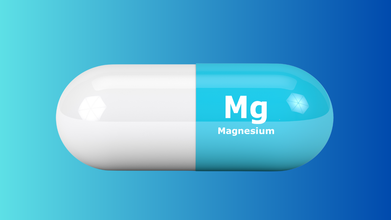- Health Conditions A-Z
- Health & Wellness
- Nutrition
- Fitness
- Health News
- Ayurveda
- Videos
- Medicine A-Z
- Parenting
- Web Stories
Going Vegetarian? These Protein-Packed Vegetables Have You Covered

Credit: Canva
Including protein-rich vegetables in your daily diet can significantly contribute to maintaining muscle mass and supporting essential bodily functions. While meat is often considered the primary source of protein, plant-based options provide equally nutritious and versatile alternatives.
Here are some nutrient-dense vegetables packed with protein that can be enjoyed as standalone dishes or as part of various recipes:
Edamame – With 18.4 grams of protein per cup, edamame is a powerhouse of plant-based nutrition. Often served as a side dish in sushi restaurants, it can also be prepared at home in a variety of ways, such as Spicy Edamame or Crispy Garlic Edamame.
Lentils – These small, lens-shaped legumes contain 17.9 grams of protein per cup when boiled. Lentils are a cost-effective and readily available source of plant protein. From Red Lentil Taco Soup to Lentil Salad, they can be incorporated into various meals.
Pinto Beans – A staple in Mexican cuisine, pinto beans deliver 15.4 grams of protein per cup when boiled. Use them in burritos, soups, or simply as a side dish to add protein to your meals.
ALSO READ: HHS and FDA Launch Operation Stroke Speed to Boost Infant Formula Quality
Chickpeas – With 21.3 grams of protein per 100 grams of dried chickpeas, these legumes are a nutritional powerhouse. Roast them for a crunchy snack or blend them into hummus for a protein-rich dip.
Mung Beans – Providing 14.2 grams of protein per cup when boiled, mung beans are also rich in iron and fiber. They can be used in curries or sprouted to make nutritious burgers.
Fava Beans – Often compared to green beans or edamame, fava beans contain 12.9 grams of protein per cup. Add them to salads or blend them into a creamy dip.
Lima Beans – Packing 11.6 grams of protein per cup, lima beans are a nutrient-dense option rich in potassium and iron. They can be enjoyed in baked dishes or pureed into a smooth hummus.
Green Peas – Don’t underestimate these small vegetables; a cup of boiled green peas provides 8.58 grams of protein. They can be added to soups, casseroles, or even roasted for a crunchy snack.
Quinoa – Technically a seed, quinoa is known for its complete protein profile, providing 8.14 grams per cup when cooked. It’s a versatile grain that can be added to salads, pilafs, and grain bowls.
Wild Rice – With 6.54 grams of protein per cup, wild rice is a nutrient-rich alternative to regular rice. Incorporate it into casseroles, soups, or use it as a stuffing base.
Incorporating these protein-rich vegetables into your diet can not only help meet your daily protein requirements but also provide an array of essential vitamins, minerals, and dietary fiber. Opting for plant-based protein sources can also contribute to a balanced, nutrient-dense diet that promotes overall health.
ALSO READ: New COVID-19 Wave Hits Asia With Singapore And Hong Kong Reporting Sharp Rise In Cases
Why Magnesium Matters More Than You Think

Credits: Canva
Magnesium supplements are everywhere. Whether you see it on pharmacy shelves or wellness blogs and social media where influencers who swear by them. You’ve probably heard someone claim that a daily magnesium tablet can help you sleep better, ease muscle cramps, or boost your mood. But do you actually need one, or is this just another wellness trend gone too far?
What Is Magnesium and Why Do We Need It?
Magnesium is an essential mineral that plays a crucial role in over 300 biochemical reactions in the body. It helps regulate muscle and nerve function, supports a healthy immune system, builds protein, maintains blood sugar and blood pressure levels, and aids in energy production.
Because the body doesn’t produce magnesium on its own, it must come from external sources such as food or supplements. The recommended daily intake varies: 310–420 mg for adults and 30–410 mg for children, depending on age and sex.
The good news? A balanced diet can easily meet these requirements. Magnesium-rich foods include nuts and seeds, leafy green vegetables, legumes, seafood, whole grains, and meat. Even dark chocolate can help, 100 grams of dark chocolate contains around 146 mg of magnesium.
Who Is at Risk of Magnesium Deficiency?
Most people get enough magnesium from food, but certain groups are more vulnerable to deficiency. These include people with gastrointestinal disorders such as Crohn’s disease or coeliac disease, those with type 2 diabetes, people who consume excessive alcohol, and older adults.
If you’re low on magnesium, you might notice symptoms such as muscle twitches, spasms, fatigue, low appetite, nausea, or an irregular heartbeat. However, the only way to confirm a deficiency is through a blood test prescribed by your doctor, which, in most cases, is covered by Medicare.
Can Magnesium Supplements Really Help?
Magnesium supplements are often promoted as a solution for muscle cramps, migraines, and insomnia. But do they actually work?
While magnesium deficiency can lead to cramps, most cases of muscle cramps are not due to low magnesium. Research shows limited evidence that supplements prevent cramps, especially in older adults.
The link between magnesium and better sleep is also unclear. Some studies found it helped people fall asleep faster, while others found no significant difference.
When it comes to migraines, evidence is stronger. Studies suggest that taking 122–600 mg of magnesium daily for 4–24 weeks may reduce the frequency and severity of migraines in some people.
Are Magnesium Supplements Safe?
In general, magnesium supplements are safe when taken in the recommended amounts. However, too much can lead to nausea, abdominal cramps, and diarrhea, because magnesium draws water into the intestines.
Taking extremely large doses (around 5,000 mg daily) can cause magnesium toxicity, which is dangerous. Always check with your doctor before starting supplements, especially if you take other medications.
Different Forms and What to Watch Out For
Magnesium is available in tablets, powders, and even topical forms like creams and bath salts. While these skin-based products may raise magnesium levels slightly, they’re less effective than oral supplements or food sources.
When buying supplements, check the label carefully. Most tablets contain 150–350 mg of magnesium, but formulations vary widely. Some also include additional nutrients like vitamins B6, C, or D, and minerals like calcium or manganese.
Be cautious with vitamin B6, high intake can cause nerve damage over time. If you already take a multivitamin containing B6, avoid magnesium supplements that also include it.
Think Your Milk Is Fresh? Simple Ways To Spot Adulteration At Home

Credits: Canva
Milk is one of the most common items found in every household and is considered a wholesome food packed with calcium, protein, and vitamin D.
It plays an important role in maintaining strong bones, building muscles, and supporting overall health. Because of its nutritional richness, milk is often called a complete food. However, it is essential to ensure that the milk you consume is pure and free from adulteration. Contaminated or diluted milk can lose its nutritional value and even harm your health. Fortunately, there are simple methods you can try at home to find out whether your milk is pure or adulterated.
What Is Milk Adulteration?
Food adulteration is the intentional act of reducing the quality of food by mixing or replacing it with inferior substances, or by removing essential components. The same applies to milk. While contamination of food can happen accidentally during storage, transport, or distribution, adulteration is done deliberately for profit.
Milk adulteration involves adding materials such as water, urea, detergent, or other chemicals to increase volume or extend shelf life. This practice reduces the nutritional value and can pose serious health risks to consumers.
How To Check Milk Adulteration at Home
There are a few simple ways to check for adulteration using common items at home:
- Water Test: Pour a small amount of milk onto a slanted surface. Pure milk flows slowly, leaving a white trail, while milk mixed with water flows quickly and leaves little or no mark.
- Detergent Test: Shake equal parts of milk and water. Pure milk forms a light foam, whereas adulterated milk creates thick, soapy froth.
- Starch Test: Add a few drops of iodine solution to the milk. If it turns blue, starch has been added.
- Urea Test: Mix a small amount of milk with soybean powder and dip red litmus paper into it. If the paper turns blue, it indicates the presence of urea.
What Happens When You Consume Adulterated Milk
Regularly drinking adulterated milk can cause several health issues from short-term stomach discomfort to severe, long-term illnesses. The exact effects depend on what substance has been added, ranging from diluted water to harmful chemicals.
Immediate Health Effects
- Digestive problems: Contaminants like urea, detergent, or unclean water can cause nausea, vomiting, diarrhea, and stomach cramps.
- Irritation and burning: Strong alkaline substances such as caustic soda may burn the mouth, throat, and digestive tract, damaging body tissues.
- Allergic reactions: Some chemical additives and impurities can trigger allergies, leading to rashes, itching, or breathing difficulty.
Long-Term Health Consequences
- Kidney damage: Chemicals like urea overwork the kidneys, increasing the risk of long-term damage or kidney failure.
- Liver problems: Preservatives such as formalin (formaldehyde) used to prolong milk’s freshness can harm the liver over time.
- Cancer risk: Long exposure to toxic compounds, including formalin and certain pesticides, has been linked to cancer.
- Heart disease: Artificial fats or vegetable oils added to milk can raise bad cholesterol, contributing to heart problems.
- Hormonal imbalance: Cattle injected with hormones like oxytocin can pass traces into milk, disrupting natural hormone levels in humans.
- Weakened immunity: Consuming impure milk regularly can weaken the immune system, making you more prone to infections.
- Nutritional deficiency: When milk is diluted or its nutrients are replaced with cheaper additives, it loses its health benefits. This is especially harmful for children, as it can affect their growth and development.
THIS Common Vegetable Juice Can Help Lower Your Blood Pressure Naturally

Credits: Canva
A common vegetable has been found to help reduce blood pressure in older adults, according to a new study. Beetroot juice can lower blood pressure in people aged 60 and above by targeting certain potentially harmful bacteria in the mouth. Researchers at the University of Exeter studied how younger and older adults responded to beetroot juice, which is rich in dietary nitrates. These nitrates are converted by the body into nitric oxide, a compound that relaxes and widens blood vessels, helping to lower blood pressure.
How the Study Tested Beetroot Juice on Younger and Older Adults
The study included 39 adults under the age of 30 and 36 adults in their 60s and 70s. For two weeks, each group received shots of beetroot juice. After a two-week break, during which participants used antiseptic mouthwash daily, they were given a placebo juice without nitrates for another two weeks.
Researchers analyzed the bacteria in participants’ mouths using gene sequencing. In both groups, the oral microbiome—the community of microorganisms in the mouth—changed after drinking nitrate-rich juice, though the effects were different depending on age. In older adults, there was a reduction in common bacteria that can sometimes cause infections and an increase in bacteria that support health. The older participants also showed lower blood pressure after two weeks of drinking the nitrate-rich juice.
Professor Andy Jones of the University of Exeter said, “This study shows that nitrate-rich foods can change the oral microbiome in ways that may reduce inflammation and lower blood pressure in older adults. This opens the door for larger studies to examine how lifestyle factors and biological sex affect responses to dietary nitrate supplements.”
Can A Person Drink Beet Juice While Taking Blood Pressure Medication?
It may be possible to drink beet juice while taking blood pressure medications. However, it’s important to consult a doctor before making any changes to a treatment plan for high blood pressure.
A doctor can advise whether combining beet juice with blood pressure medication could lower blood pressure too much. If this happens, a person may experience symptoms such as:
- Dizziness or lightheadedness
- Blurry vision
- Fainting
- Confusion
- Weakness or tiredness
- Headache
- Back or neck pain
- Heart palpitations
- Nausea
Low blood pressure (hypotension) can be serious. If someone experiences severe symptoms that do not improve when sitting or lying down, they should seek immediate medical attention.
Does Eating Beets Lower Blood Pressure?
Eating beets may help reduce blood pressure, but most research has focused on beet juice rather than whole beets.
Currently, there isn’t enough scientific evidence to confirm that eating beets has the same effect as drinking beet juice.
If someone wants to explore dietary changes to manage their blood pressure, it’s best to consult a doctor before making adjustments.
© 2024 Bennett, Coleman & Company Limited

